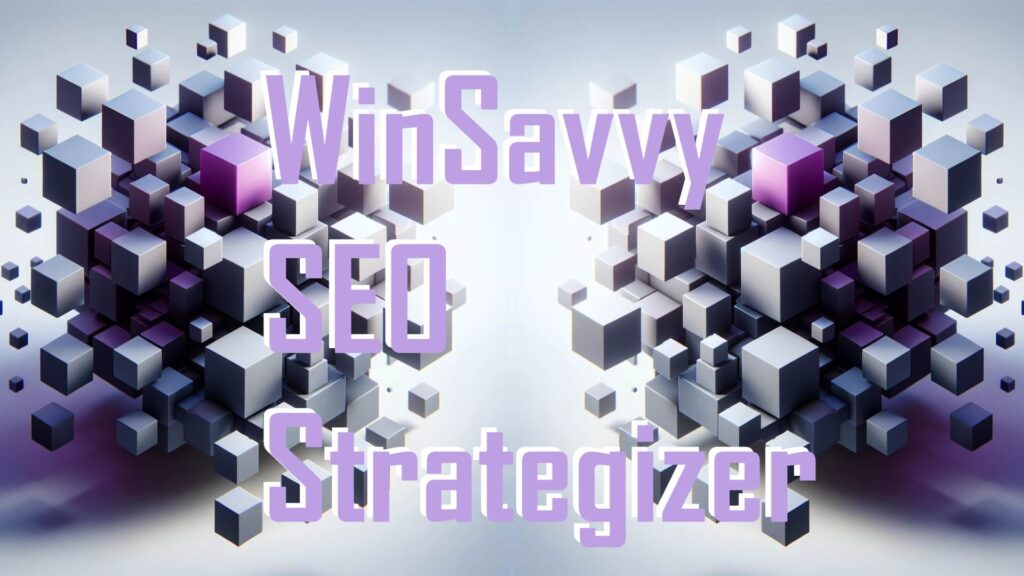This Article has been revised, edited and added to, by Poulomi Chakraborty.
- Embracing AI in Content Marketing
- AI-Driven Content Creation: Revolutionizing the Process
- AI in Content Distribution: Maximizing Reach and Engagement
- AI in Content Analytics: Unlocking Insights and Measuring Success
- AI in Personalization: Crafting Tailored Content Experiences
- AI and Content Strategy: Crafting Data-Driven Plans
- AI and Audience Insights: Understanding and Engaging Your Audience
- Conclusion
In the ever-evolving digital landscape, content marketing has emerged as a pivotal strategy for businesses to connect with their audience. With the advent of Artificial Intelligence (AI), the dynamics of content marketing are undergoing a significant transformation. This article delves into the opportunities and challenges presented by AI in the realm of content marketing, providing a comprehensive overview for marketers looking to leverage this technology effectively.
Embracing AI in Content Marketing

Artificial Intelligence, once a concept confined to science fiction, is now a tangible force driving innovation across industries. In content marketing, AI offers tools and techniques that can revolutionize how we create, distribute, and analyze content. By understanding these advancements, businesses can harness AI to enhance their marketing strategies.
Opportunities: Enhancing Content Creation
One of the most profound impacts of AI in content marketing is its ability to enhance content creation. AI-powered tools can assist in generating ideas, drafting articles, and even writing entire pieces.
These tools analyze vast amounts of data to identify trends, preferences, and effective language patterns, enabling marketers to produce content that resonates with their audience.
For instance, AI-driven platforms like GPT-4 can generate content based on specific keywords, topics, or audience preferences. This not only saves time but also ensures that the content is optimized for search engines, increasing its visibility and reach.
Additionally, AI can help in creating personalized content for different segments of an audience, making marketing efforts more targeted and effective.
Comparison: Human Creativity vs. AI Efficiency
While AI offers remarkable efficiency, it brings up the age-old debate of machine versus human creativity. AI can process and analyze data at an unprecedented speed, providing insights and generating content quickly. However, human creativity, with its nuances and emotional depth, remains irreplaceable.
Consider the process of brainstorming content ideas. An AI tool can analyze trending topics and suggest ideas based on data. A human marketer, on the other hand, can infuse these ideas with creativity and personal insights, crafting a narrative that is both engaging and authentic.
The ideal approach, therefore, is a synergy between AI efficiency and human creativity. Marketers can use AI to gather data-driven insights and rely on their creative instincts to craft compelling stories.
Challenges: Navigating Ethical Concerns
As AI becomes more integrated into content marketing, ethical concerns arise. The use of AI to generate content can blur the lines between authentic and automated voices, raising questions about transparency and trust. It’s crucial for businesses to maintain transparency about the use of AI in their content creation processes to preserve trust with their audience.
Furthermore, AI algorithms can sometimes perpetuate biases present in the data they analyze. This can lead to the creation of content that unintentionally reinforces stereotypes or excludes certain groups. Marketers must be vigilant in monitoring the outputs of AI tools to ensure that their content is inclusive and unbiased.
The Future: AI and Human Collaboration
Looking ahead, the future of content marketing lies in the collaboration between AI and human marketers. AI will continue to evolve, offering more sophisticated tools for content creation, distribution, and analysis. However, the role of human creativity, intuition, and ethical judgment will remain crucial.
By embracing AI, marketers can streamline their workflows, gain deeper insights into their audience, and create more personalized and effective content. Simultaneously, they must uphold the values of authenticity, creativity, and inclusivity to build lasting connections with their audience.
AI-Driven Content Creation: Revolutionizing the Process

The integration of AI in content creation is reshaping the marketing landscape, offering new possibilities and efficiencies. This section will explore how AI-driven content creation works, its benefits, and the challenges it presents.
Understanding AI-Driven Content Creation
AI-driven content creation involves using algorithms and machine learning to generate written, visual, and audio content. These tools can analyze data, recognize patterns, and produce content that mimics human writing styles. From drafting blog posts to creating social media updates, AI is capable of handling various content types, freeing up time for marketers to focus on strategy and creativity.
Benefits of AI-Driven Content Creation
AI-driven content creation offers numerous benefits that can significantly enhance a marketing strategy. First and foremost, it improves efficiency. AI tools can produce content at a much faster rate than humans, allowing marketers to keep up with the constant demand for fresh and relevant material. This speed can be particularly useful for real-time marketing efforts, where timely content is crucial.
Another key benefit is consistency. AI ensures that the tone, style, and quality of the content remain uniform across various pieces. This consistency helps in maintaining a cohesive brand voice, which is essential for building brand identity and trust. AI can also tailor content to different platforms, ensuring that the format and style are optimized for each channel.
Personalization is another significant advantage. AI can analyze user data to understand preferences and behaviors, enabling the creation of highly personalized content. This level of personalization can enhance user engagement and loyalty, as audiences are more likely to interact with content that speaks directly to their interests and needs.
Challenges in AI-Driven Content Creation
Despite its benefits, AI-driven content creation is not without challenges. One of the primary concerns is the potential loss of the human touch. While AI can generate content efficiently, it may lack the emotional depth and creativity that humans bring to the table. This can result in content that feels generic or impersonal, which may not resonate as deeply with audiences.
Quality control is another challenge. Although AI tools are becoming increasingly sophisticated, they are not infallible. There can be instances where the generated content is factually incorrect or lacks coherence. Human oversight is necessary to ensure that the content meets the required standards and accurately represents the brand.
Ethical considerations also come into play. As mentioned earlier, the use of AI can raise transparency issues. Audiences have the right to know if the content they are consuming was created by a machine. Marketers must find a balance between leveraging AI for efficiency and maintaining transparency to build trust with their audience.
Strategic Integration of AI in Content Marketing
To harness the full potential of AI in content marketing, businesses need a strategic approach. This involves understanding when and how to use AI tools to complement human efforts rather than replace them. Here are some strategies for effectively integrating AI into content marketing.
Identifying the Right AI Tools
The first step is to identify the right AI tools for your needs. There are various AI-driven platforms available, each with its strengths and weaknesses. For example, some tools are better suited for generating written content, while others excel in visual or audio content creation. Businesses should evaluate these tools based on their specific requirements and goals.
Balancing AI Efficiency with Human Creativity
As discussed earlier, the ideal approach is a synergy between AI efficiency and human creativity. Marketers should use AI to handle repetitive and data-driven tasks, such as generating drafts, analyzing trends, and optimizing content for SEO. Meanwhile, human marketers can focus on adding creative flair, emotional depth, and strategic insights to the content.
Ensuring Quality and Authenticity
Quality control is crucial when using AI in content creation. Businesses should establish a robust review process where human editors assess the AI-generated content for accuracy, coherence, and quality. This helps in maintaining the authenticity and reliability of the content, ensuring it aligns with the brand’s values and messaging.
Monitoring and Mitigating Bias
To address ethical concerns, businesses must actively monitor AI outputs for any biases. This involves regularly reviewing the data used to train AI models and implementing corrective measures to mitigate any detected biases. By doing so, marketers can ensure that their content is inclusive and fair, reflecting the diverse needs of their audience.
The Future of AI in Content Marketing
The future of AI in content marketing is promising, with ongoing advancements in technology poised to offer even more sophisticated tools. As AI continues to evolve, its ability to understand and replicate human nuances will improve, leading to more authentic and engaging content.
One area of significant potential is the use of AI for real-time content personalization. With advancements in machine learning, AI can analyze user behavior in real-time and adjust content accordingly. This dynamic personalization can greatly enhance user experience, driving higher engagement and conversions.
Moreover, AI can aid in predicting content trends and audience preferences, allowing marketers to stay ahead of the curve. By leveraging predictive analytics, businesses can create proactive content strategies that anticipate audience needs and deliver relevant content before the competition.

We started using AI to improve the quality of the Authority Hacker podcast. Our podcast on affiliate marketing and SEO is the biggest one in the world right now, with over 300 episodes!
We regularly bring in and interview famous people in the industry. To improve the interviews, we use AI to make a transcript of all their past interviews on other platforms – sometimes even tens of talks and videos.
Then, we ask AI to analyze the transcripts and ask it questions like “When did this person contradict themselves?” or “What interesting questions can we ask that no one asked before?”. As you can imagine, gathering all of this information by hand would be too time-consuming, but with the help of AI, it takes less than a few hours.
Mark Webster, Founder of Authority Hacker
AI in Content Distribution: Maximizing Reach and Engagement
While content creation is a critical aspect of marketing, distribution is equally important. AI offers innovative solutions for content distribution, ensuring that the right content reaches the right audience at the right time. This section explores how AI can optimize content distribution and the benefits it brings to marketers.
AI-Powered Distribution Channels
AI-powered distribution channels use machine learning algorithms to analyze audience behavior and preferences. These algorithms can determine the optimal times to post content, the best platforms to use, and the most effective formats to engage the target audience. By automating these decisions, AI ensures that content is distributed in a way that maximizes its reach and impact.
Benefits of AI-Powered Content Distribution
AI-powered content distribution offers numerous advantages that can significantly enhance marketing efforts. One of the primary benefits is precision targeting. AI can analyze vast amounts of data to segment audiences based on various criteria such as demographics, behavior, and preferences. This allows marketers to deliver highly targeted content that resonates with specific audience segments, increasing engagement and conversion rates.
Another advantage is the ability to optimize timing. AI tools can identify the best times to publish content by analyzing when the target audience is most active and likely to engage. This ensures that content is delivered at optimal moments, maximizing visibility and impact.
AI also enables dynamic adaptation. Unlike traditional methods, AI can continuously monitor performance metrics and adjust distribution strategies in real-time. This agility allows marketers to respond swiftly to changes in audience behavior or market trends, ensuring that their content remains relevant and effective.
Overcoming Challenges in AI-Powered Distribution
While AI offers significant benefits for content distribution, it also presents challenges that marketers need to address. One major challenge is data privacy. The use of AI relies heavily on data collection and analysis, raising concerns about user privacy and data security. Marketers must ensure they comply with data protection regulations and implement robust measures to safeguard user information.
Another challenge is the potential for over-reliance on AI. While AI can enhance distribution strategies, it should not replace human judgment entirely. Marketers should use AI as a tool to inform their decisions rather than relying on it exclusively. This balanced approach ensures that content distribution strategies are both data-driven and contextually relevant.
Additionally, the complexity of AI tools can be a barrier for some businesses. Implementing and managing AI-powered distribution systems requires technical expertise and resources that may not be readily available to all organizations. To overcome this, businesses can consider partnering with AI technology providers or investing in training programs to build internal capabilities.
Strategic Approaches to AI-Powered Distribution
To effectively leverage AI in content distribution, businesses need to adopt strategic approaches that align with their overall marketing goals. Here are some key strategies to consider.
Integrating AI with Existing Systems
One of the first steps is to integrate AI tools with existing marketing systems and platforms. This seamless integration allows for a more cohesive and efficient workflow, where data from various sources can be consolidated and analyzed holistically.
By integrating AI with CRM systems, email marketing platforms, and social media management tools, businesses can gain a comprehensive view of their audience and optimize their distribution strategies accordingly.
Utilizing Predictive Analytics
Predictive analytics is a powerful capability of AI that can significantly enhance content distribution. By analyzing historical data, AI can predict future trends and audience behavior, allowing marketers to proactively adjust their strategies.
For instance, AI can forecast which types of content are likely to perform well in the future or identify emerging trends that the business can capitalize on. This foresight enables marketers to stay ahead of the curve and deliver content that meets the evolving needs of their audience.
Continuous Monitoring and Optimization
AI-powered distribution should be viewed as an ongoing process rather than a one-time setup. Continuous monitoring and optimization are essential to ensure that the distribution strategy remains effective.
Marketers should regularly review performance metrics, such as engagement rates, click-through rates, and conversion rates, to identify areas for improvement. AI can assist in this process by providing real-time insights and recommendations, enabling marketers to make data-driven adjustments and optimize their strategies for better results.
The Future of AI in Content Distribution
Looking ahead, the role of AI in content distribution is set to expand further, with advancements in technology opening up new possibilities. One exciting development is the integration of AI with emerging technologies such as augmented reality (AR) and virtual reality (VR).
These technologies offer immersive and interactive content experiences that can captivate audiences in novel ways. AI can enhance these experiences by personalizing them based on user preferences and behavior, creating highly engaging and memorable interactions.
Another promising area is the use of AI-powered chatbots and virtual assistants for content distribution. These tools can engage with users in real-time, delivering personalized content recommendations and answering queries.
By leveraging natural language processing and machine learning, chatbots and virtual assistants can provide a seamless and interactive content experience, driving higher engagement and satisfaction.
AI in Content Analytics: Unlocking Insights and Measuring Success

In addition to creation and distribution, AI plays a crucial role in content analytics. By analyzing vast amounts of data, AI can uncover valuable insights that inform marketing strategies and measure the success of content initiatives. This section explores how AI enhances content analytics and the benefits it brings to marketers.
Enhancing Data Analysis with AI
Traditional methods of data analysis can be time-consuming and limited in scope. AI, on the other hand, can process and analyze large datasets quickly and accurately, identifying patterns and trends that might be overlooked by human analysts.
This ability to handle big data enables marketers to gain deeper insights into audience behavior, content performance, and market trends.
AI-powered analytics tools can track various metrics such as engagement rates, social shares, click-through rates, and conversion rates. By analyzing these metrics, AI can provide a comprehensive view of how content is performing across different channels and audience segments. This data-driven approach allows marketers to make informed decisions and optimize their content strategies for better results.
Benefits of AI-Enhanced Content Analytics
AI-enhanced content analytics offers several benefits that can significantly improve marketing outcomes. One of the key advantages is the ability to gain actionable insights. AI can analyze complex data sets and distill them into meaningful insights that marketers can act upon.
For example, AI can identify which types of content are most effective at driving engagement, which topics resonate most with the audience, and which distribution channels yield the highest return on investment.
Another major benefit is real-time analysis. Traditional analytics methods often involve delays in data processing and reporting, which can hinder timely decision-making. AI, however, can analyze data in real-time, providing marketers with immediate insights.
This real-time capability allows for agile marketing, where strategies can be quickly adjusted based on the latest data, ensuring that marketing efforts are always aligned with current audience preferences and market conditions.
Predictive analytics is another powerful feature of AI-enhanced content analytics. By analyzing historical data, AI can predict future trends and behaviors, enabling marketers to anticipate audience needs and stay ahead of the competition.
For instance, predictive analytics can forecast the performance of upcoming content campaigns, helping marketers to optimize their strategies and allocate resources more effectively.
Overcoming Challenges in AI-Enhanced Analytics
Despite its benefits, implementing AI-enhanced content analytics comes with challenges. One of the primary challenges is data quality. AI relies on high-quality data to generate accurate insights.
Inaccurate or incomplete data can lead to misleading conclusions and ineffective strategies. Marketers must ensure that their data collection processes are robust and that the data used for analysis is clean and reliable.
Another challenge is the complexity of AI tools. Advanced AI analytics platforms can be complex to set up and use, requiring technical expertise that may not be available in all organizations.
Businesses may need to invest in training or seek external support to effectively leverage these tools. Additionally, integrating AI analytics with existing systems and workflows can be challenging, requiring careful planning and execution.
Ethical considerations also play a role in AI-enhanced analytics. The use of AI to analyze user data raises privacy concerns, and marketers must ensure that they comply with data protection regulations. Transparency is crucial; users should be informed about how their data is being used and have control over their personal information.
Strategic Approaches to AI-Enhanced Analytics
To effectively leverage AI in content analytics, businesses need to adopt strategic approaches that maximize the benefits and address the challenges. Here are some key strategies to consider.
Ensuring Data Quality
High-quality data is the foundation of effective AI analytics. Businesses should implement rigorous data collection and cleaning processes to ensure that their data is accurate and reliable.
This may involve regular audits, validation checks, and the use of data enrichment techniques to fill in gaps. By maintaining high data quality, businesses can ensure that their AI-generated insights are accurate and actionable.
Integrating AI with Business Goals
AI analytics should be aligned with overall business goals and marketing objectives. Businesses should clearly define what they aim to achieve with AI analytics, whether it’s improving audience engagement, increasing conversions, or optimizing content strategies. By aligning AI analytics with business goals, marketers can ensure that their efforts are focused and strategic, driving tangible results.
Investing in Skills and Training
The successful implementation of AI-enhanced analytics requires skilled professionals who understand both AI technology and marketing principles. Businesses should invest in training programs to build internal capabilities and ensure that their teams are equipped to leverage AI tools effectively. This may involve upskilling existing staff or hiring new talent with expertise in AI and data analytics.
Ethical and Transparent Practices
Businesses must prioritize ethical and transparent practices when using AI for content analytics. This includes complying with data protection regulations, being transparent about data usage, and respecting user privacy. By building trust with their audience, businesses can ensure that their AI analytics efforts are sustainable and socially responsible.
The Future of AI in Content Analytics
The future of AI in content analytics is bright, with ongoing advancements set to enhance its capabilities further. One exciting development is the integration of AI with advanced machine learning techniques, such as deep learning and neural networks.
These techniques can analyze even more complex data sets, uncovering deeper insights and enabling more sophisticated predictive analytics.
Another promising area is the use of AI for sentiment analysis. By analyzing social media posts, reviews, and other user-generated content, AI can gauge audience sentiment and identify emerging trends.
This can provide marketers with valuable insights into how their brand is perceived and how they can improve their content strategies to better meet audience expectations.
Additionally, AI can enhance the visualization of analytics data. Advanced AI tools can generate interactive and intuitive visualizations that make it easier for marketers to understand and interpret data. This can facilitate better decision-making and help businesses to communicate insights more effectively to stakeholders.

Related: Check out our free SEO suite

AI in Personalization: Crafting Tailored Content Experiences
Personalization is a cornerstone of effective content marketing, and AI plays a pivotal role in enhancing personalization efforts. By analyzing user data and behavior, AI can create tailored content experiences that resonate with individual audience members. This section explores how AI enhances personalization and the benefits it brings to marketers.
Understanding AI-Driven Personalization
AI-driven personalization involves using algorithms and machine learning to analyze user data and deliver customized content experiences. This can include personalized recommendations, targeted content, and individualized user journeys. AI can analyze various data points, such as browsing history, purchase behavior, and social media activity, to understand user preferences and interests.
Benefits of AI-Driven Personalization
AI-driven personalization offers several benefits that can significantly enhance the effectiveness of content marketing strategies. One of the most significant advantages is increased user engagement.
Personalized content resonates more deeply with users because it aligns with their interests, preferences, and needs. This relevance fosters a stronger connection between the audience and the brand, leading to higher engagement rates.
Another key benefit is improved customer loyalty. When users receive personalized content that speaks directly to them, they feel valued and understood. This sense of recognition and appreciation can build trust and loyalty over time, encouraging repeat interactions and long-term relationships with the brand.
AI-driven personalization also enhances conversion rates. By delivering content that is tailored to the specific needs and desires of individual users, AI can guide them more effectively through the customer journey. Personalized content can address user pain points, answer specific questions, and provide relevant solutions, increasing the likelihood of conversion.
Overcoming Challenges in AI-Driven Personalization
Despite its benefits, implementing AI-driven personalization comes with challenges. One major challenge is data privacy. Personalization relies on collecting and analyzing user data, which raises concerns about privacy and data security.
Businesses must navigate these concerns carefully, ensuring that they comply with data protection regulations and adopt transparent practices.
Another challenge is the complexity of personalization algorithms. Developing and managing sophisticated AI algorithms that accurately analyze user data and deliver relevant content can be technically demanding. This requires expertise in both AI technology and data analysis, as well as ongoing monitoring and optimization to ensure the algorithms remain effective.
Additionally, there is a risk of over-personalization. While personalization is valuable, it is essential to strike a balance to avoid making users feel overwhelmed or intruded upon. Marketers must ensure that their personalization efforts enhance the user experience without becoming too invasive or repetitive.
Strategic Approaches to AI-Driven Personalization
To effectively leverage AI-driven personalization, businesses need to adopt strategic approaches that maximize the benefits and address the challenges. Here are some key strategies to consider.
Building a Robust Data Infrastructure
A strong data infrastructure is crucial for effective AI-driven personalization. Businesses should invest in systems that can collect, store, and process large volumes of user data efficiently. This includes implementing robust data management practices, such as data cleansing and enrichment, to ensure that the data used for personalization is accurate and comprehensive.
Ensuring Data Privacy and Compliance
To address privacy concerns, businesses must prioritize data protection and compliance. This involves implementing stringent data security measures, such as encryption and access controls, to safeguard user information. Additionally, businesses should be transparent about their data collection and usage practices, providing users with control over their personal data and ensuring compliance with relevant regulations.
Leveraging AI for Real-Time Personalization
AI’s ability to analyze data in real-time enables dynamic personalization. Businesses should leverage this capability to deliver timely and relevant content experiences. For example, AI can provide real-time product recommendations based on a user’s browsing behavior or send personalized notifications triggered by specific actions. This immediacy enhances the user experience and increases the likelihood of engagement and conversion.
Continuous Testing and Optimization
AI-driven personalization is not a one-time setup but an ongoing process. Businesses should continuously test and optimize their personalization strategies to ensure they remain effective. This involves regularly reviewing performance metrics, conducting A/B testing, and refining algorithms based on user feedback and behavioral data. By adopting a culture of continuous improvement, businesses can keep their personalization efforts relevant and impactful.
The Future of AI in Personalization
The future of AI in personalization is promising, with advancements in technology set to offer even more sophisticated capabilities. One exciting development is the integration of AI with natural language processing (NLP).
NLP enables AI to understand and interpret human language more effectively, allowing for more nuanced and contextually relevant personalization. This can enhance the quality of content recommendations and improve the overall user experience.
Another promising area is the use of AI for predictive personalization. By analyzing past behavior and predicting future actions, AI can proactively deliver content that meets users’ anticipated needs.
For example, an AI system might predict that a user is likely to be interested in a particular topic based on their browsing history and deliver relevant content before the user actively searches for it. This proactive approach can significantly enhance user satisfaction and engagement.
Additionally, AI can enhance personalization through the use of advanced machine learning techniques. These techniques can analyze complex data sets and identify intricate patterns that inform more precise and effective personalization strategies.
For instance, deep learning algorithms can uncover hidden relationships between user behavior and content preferences, enabling more accurate and impactful recommendations.
AI and Content Strategy: Crafting Data-Driven Plans

AI’s impact on content marketing extends beyond creation, distribution, and personalization to the overall content strategy. By leveraging AI, businesses can craft data-driven content strategies that are more informed, effective, and adaptable. This section explores how AI enhances content strategy and the benefits it brings to marketers.
Data-Driven Content Planning
AI enables businesses to plan their content strategies based on data-driven insights. By analyzing large volumes of data, AI can identify trends, audience preferences, and competitive dynamics. This information allows marketers to make more informed decisions about what content to create, when to publish it, and how to promote it.
For example, AI can analyze search trends and social media activity to identify popular topics and emerging trends. Marketers can use these insights to develop content that is timely, relevant, and likely to resonate with their audience. Additionally, AI can assess the performance of past content to determine what types of content have been most effective, guiding future content planning.
Benefits of Data-Driven Content Strategy
Implementing a data-driven content strategy with the help of AI offers several benefits that can significantly enhance marketing effectiveness. One of the primary advantages is increased relevance.
By leveraging AI to analyze audience data, businesses can create content that directly addresses the needs, interests, and pain points of their target audience. This relevance boosts engagement and ensures that the content resonates with readers.
Another key benefit is improved efficiency. AI can streamline the content planning process by providing actionable insights and automating routine tasks. This allows marketers to focus their efforts on creative and strategic activities, saving time and resources.
AI can also help in identifying the best times to publish content, ensuring maximum visibility and impact.
A data-driven approach also enhances adaptability. In the fast-paced digital landscape, trends and audience preferences can change rapidly. AI enables marketers to stay agile by continuously monitoring data and adjusting their strategies in real-time. This flexibility allows businesses to respond quickly to new opportunities and challenges, ensuring their content strategy remains effective and relevant.
Overcoming Challenges in Data-Driven Content Strategy
While a data-driven content strategy offers numerous benefits, it also presents challenges that businesses must address. One significant challenge is data integration. Businesses often have data scattered across various platforms and systems, making it difficult to consolidate and analyze. Effective data integration is crucial for gaining a holistic view of audience behavior and content performance.
Another challenge is the interpretation of data. AI can generate a vast amount of data and insights, but it requires skilled professionals to interpret these insights and translate them into actionable strategies. Businesses need to invest in training and development to build the necessary expertise in data analysis and AI technology.
Additionally, there is the risk of data overload. With so much data available, it can be overwhelming for marketers to determine which insights are most relevant and valuable. Businesses must prioritize their data analysis efforts and focus on the metrics that align with their strategic goals.
Strategic Approaches to Data-Driven Content Strategy
To effectively leverage AI in crafting a data-driven content strategy, businesses need to adopt strategic approaches that maximize the benefits and address the challenges. Here are some key strategies to consider.
Consolidating Data Sources
Consolidating data from various sources is essential for effective analysis. Businesses should implement data integration solutions that aggregate data from different platforms, such as CRM systems, social media, website analytics, and email marketing tools. This unified data view enables more comprehensive and accurate analysis, providing deeper insights into audience behavior and content performance.
Focusing on Key Metrics
To avoid data overload, businesses should focus on key metrics that align with their strategic goals. These might include engagement rates, conversion rates, audience growth, and content reach. By prioritizing these metrics, marketers can concentrate their efforts on the most impactful areas and make data-driven decisions that drive results.
Leveraging Predictive Analytics
Predictive analytics is a powerful tool for data-driven content strategy. By analyzing historical data, AI can predict future trends and audience behavior, enabling marketers to proactively plan their content. For instance, predictive analytics can forecast which topics are likely to gain popularity or which types of content will perform well in the future. This foresight allows businesses to stay ahead of the curve and create content that meets the evolving needs of their audience.
Continuous Learning and Adaptation
A data-driven content strategy should be dynamic and adaptable. Businesses should continuously monitor performance metrics and adjust their strategies based on the latest data. This involves conducting regular reviews, testing different approaches, and learning from both successes and failures. By adopting a culture of continuous improvement, businesses can ensure that their content strategy remains effective and relevant in a constantly changing digital landscape.
The Future of AI in Content Strategy
The future of AI in content strategy is promising, with ongoing advancements set to enhance its capabilities further. One exciting development is the integration of AI with advanced analytics and visualization tools. These tools can provide more intuitive and interactive ways to analyze data, making it easier for marketers to understand and act on insights.
Another promising area is the use of AI for strategic content optimization. AI can analyze content performance in real-time and provide recommendations for optimization, such as adjusting headlines, refining messaging, or changing the publishing schedule. This dynamic optimization can enhance the effectiveness of content campaigns and drive better results.
Additionally, AI can enhance the ability to measure and attribute content impact. Advanced AI algorithms can track the entire customer journey and attribute conversions to specific content pieces, providing a more accurate picture of content ROI. This granular insight allows businesses to refine their content strategies and allocate resources more effectively.
AI and Audience Insights: Understanding and Engaging Your Audience

Understanding the audience is a cornerstone of effective content marketing, and AI plays a pivotal role in gaining deeper audience insights. By analyzing vast amounts of data, AI can uncover valuable information about audience behavior, preferences, and needs. This section explores how AI enhances audience insights and the benefits it brings to marketers.
Enhancing Audience Understanding with AI
AI enables businesses to gain a comprehensive understanding of their audience by analyzing various data points, such as browsing behavior, social media interactions, purchase history, and demographic information. By integrating and analyzing this data, AI can create detailed audience profiles that reveal key insights into what drives audience engagement and conversion.
For instance, AI can identify patterns in user behavior, such as which types of content are most popular, what times of day users are most active, and which channels they prefer. These insights allow marketers to tailor their content strategies to better align with audience preferences and behaviors.
Benefits of AI-Enhanced Audience Insights
AI-enhanced audience insights offer numerous benefits that can significantly improve the effectiveness of content marketing strategies. One of the primary advantages is the ability to deliver more personalized content. By understanding the preferences and behaviors of individual audience members, businesses can create content that speaks directly to their interests and needs, fostering a stronger connection and increasing engagement.
Another key benefit is the ability to anticipate audience needs. AI can analyze historical data to predict future behaviors and preferences, allowing marketers to proactively address emerging trends and topics. This foresight enables businesses to stay ahead of the curve and consistently deliver relevant content that meets the evolving needs of their audience.
AI also enhances segmentation capabilities. By analyzing large datasets, AI can identify distinct audience segments based on various criteria such as demographics, behavior, and preferences. This granular segmentation allows marketers to tailor their content strategies for different segments, ensuring that each group receives content that resonates with them, thereby improving engagement and conversion rates.
Overcoming Challenges in AI-Enhanced Audience Insights
While AI-enhanced audience insights offer significant benefits, they also present challenges that businesses must address. One major challenge is data privacy. Collecting and analyzing user data to gain insights can raise privacy concerns. Businesses must ensure they comply with data protection regulations and adopt transparent practices to build trust with their audience.
Another challenge is the complexity of AI tools. Implementing and managing AI systems for audience insights requires technical expertise and resources that may not be readily available in all organizations. Businesses may need to invest in training or seek external support to effectively leverage these tools.
Additionally, there is the risk of data misinterpretation. AI can generate a vast amount of insights, but it requires skilled professionals to interpret these insights accurately and translate them into actionable strategies. Misinterpreting data can lead to ineffective or misguided content strategies, underscoring the importance of expertise in data analysis and AI technology.
Strategic Approaches to AI-Enhanced Audience Insights
To effectively leverage AI for audience insights, businesses need to adopt strategic approaches that maximize the benefits and address the challenges. Here are some key strategies to consider.
Prioritizing Data Privacy and Transparency
Data privacy and transparency are paramount when using AI for audience insights. Businesses should implement robust data protection measures, such as encryption and access controls, to safeguard user information. Additionally, they should be transparent about their data collection and usage practices, providing users with control over their personal information and ensuring compliance with relevant regulations.
Investing in Technical Expertise
The successful implementation of AI-enhanced audience insights requires technical expertise in both AI technology and data analysis. Businesses should invest in training programs to build internal capabilities and ensure that their teams are equipped to leverage AI tools effectively. This may involve upskilling existing staff or hiring new talent with expertise in AI and data analytics.
Combining AI Insights with Human Intuition
While AI provides valuable data-driven insights, human intuition and expertise remain crucial. Marketers should use AI insights to inform their strategies but also rely on their understanding of the audience and market dynamics to make final decisions. This combination of AI and human intuition can lead to more effective and well-rounded content strategies.
Continuous Monitoring and Adaptation
AI-enhanced audience insights should be continuously monitored and updated to ensure they remain accurate and relevant. Businesses should regularly review performance metrics, conduct audits, and refine their data collection processes. This continuous improvement approach ensures that AI insights stay aligned with the evolving needs and behaviors of the audience.
The Future of AI in Audience Insights
The future of AI in audience insights is promising, with ongoing advancements set to enhance its capabilities further. One exciting development is the integration of AI with sentiment analysis. By analyzing social media posts, reviews, and other user-generated content, AI can gauge audience sentiment and identify emerging trends. This can provide marketers with valuable insights into how their brand is perceived and how they can improve their content strategies to better meet audience expectations.
Another promising area is the use of AI for real-time audience insights. Advanced AI algorithms can analyze user behavior in real-time, providing immediate insights that enable dynamic and responsive content strategies. For instance, AI can detect sudden changes in audience preferences or behavior and adjust content recommendations accordingly, ensuring that the content remains relevant and engaging.
Additionally, AI can enhance the visualization of audience insights. Advanced AI tools can generate interactive and intuitive visualizations that make it easier for marketers to understand and interpret data. This can facilitate better decision-making and help businesses to communicate insights more effectively to stakeholders.

GPT technology offers a unique opportunity to redefine move planning and logistics scheduling in the moving industry, setting our organization apart from competitors. GPT helps us streamline the relocation process and provide greater service and value.
GPT aims to simplify and improve move planning. GPT’s natural language processing lets us efficiently sort through inventory lists, logistical needs, and consumer tastes.
We create detailed, individualized relocation plans for each client by providing the GPT model with their needs. Because of this, our planning is more accurate and fast, and our customers enjoy a more customized and easier move.
GPT improves scheduling by automating resource, staff, and plan synchronization. GPT-driven scheduling algorithms optimize routes, move workers to the proper areas quickly, and reduce downtime.
We can enhance output and cut costs this way. Because we use GPT for scheduling, we can plan and execute the move accurately. Our customers are happier and more loyal.
We differ from similar organizations who use GPT to plan and arrange moves. As more fields, such content creation and customer service, use GPT, we are proud to be at the forefront of moving industry innovation and quality by employing GPT to improve move logistics. We can shape moving services by employing GPT to its utmost to achieve unsurpassed speed, accuracy, and customer pleasure.
We purposefully use GPT to plan movements and logistical schedules, unlike other moving companies. With GPT’s sophisticated tools, we automate and improve the moving process to increase productivity, accuracy, and client happiness. Thus, we can maintain our industry leadership.
Ryan Carrigan, Co-Founder Of moveBuddha
Conclusion
AI is transforming content marketing, offering unprecedented opportunities for creating, distributing, analyzing, and optimizing content. By leveraging AI, businesses can enhance efficiency, personalize experiences, and gain deep audience insights. However, challenges such as data privacy, complexity, and ethical considerations must be addressed. A balanced approach, integrating AI’s capabilities with human creativity and intuition, is essential for success.
The future promises even more advanced AI tools, enabling real-time insights, dynamic optimization, and deeper audience understanding. Embracing AI in content marketing can lead to more effective strategies, stronger audience connections, and ultimately, better business outcomes. As the digital landscape evolves, AI will undoubtedly play a crucial role in shaping the future of content marketing.
Read Next
- Harnessing the Power of Social Media in Affiliate Marketing
- Affiliate Marketing for Digital Products: Strategies for Success
- Branding in the Age of AI and Automation: Adapting to the Future of Consumer Interactions
- Branding for the Tech Industry: Building Trust in a Rapidly Evolving Landscape
- Branding in the Age of Sustainability: Aligning Brand Values with Social Responsibility






















Comments are closed.